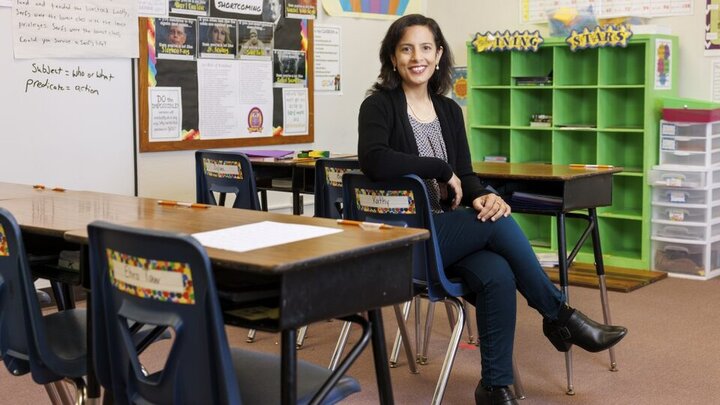Preparing kids for a fast-paced, technology-focused future starts in elementary school. Yet many teachers are ill-prepared to teach science, technology, engineering and mathematics.
The University of Nebraska–Lincoln is one of four collaborating universities leading a national, multi-institutional effort to improve novice elementary educators’ ability and confidence to teach these fields, known as STEM.
Traditionally, STEM subjects have been taught independently of each other. Approaching STEM through shared themes and language leads to improved critical thinking, problem-solving and creativity, setting students up for success in an increasingly complex world.
To help teachers-in-training as well as those already in the classroom better integrate STEM subjects, Deepika Menon leads Nebraska’s multidisciplinary research team to identify challenges and ways to improve and support elementary school teachers.
“There are only a few institutions that have redesigned their elementary (preparation) program to reflect integrated STEM in a true sense. Nebraska is a leader in thinking about integrated STEM and implementing it,” said Menon, assistant professor of teaching, learning and teacher education.
Nebraska’s success landed it a prominent role in Project RISE, Research on Integrated STEM Self-efficacy, a National Science Foundation-funded project to investigate the successes and challenges involved in preparing teachers in integrated STEM through surveys, interviews and classroom observations. More than 150 current and preservice Nebraska teachers have participated in the project.
By analyzing feedback and observations, Menon’s team is identifying aspects of its STEM training programs that work well and investigating ways to further improve them.
Its findings are already being distributed internationally via conferences and an online professional development program that brings current and preservice teachers together to build communities to learn from and support one another.
By preparing competent and confident elementary STEM educators, Nebraska and the RISE project aim to help schools retain and recruit highly qualified teachers, a particular challenge in high-needs schools. Menon’s team also seeks to understand the roles a school’s culture and administration play in STEM teacher retention and attrition.
The NSF’s Robert Noyce Teacher Scholarship funds this five-year project.
This story was included in the Office of Research and Innovation’s annual report. View the full report here.
College of Education and Human Sciences
Teaching, Learning & Teacher Education




